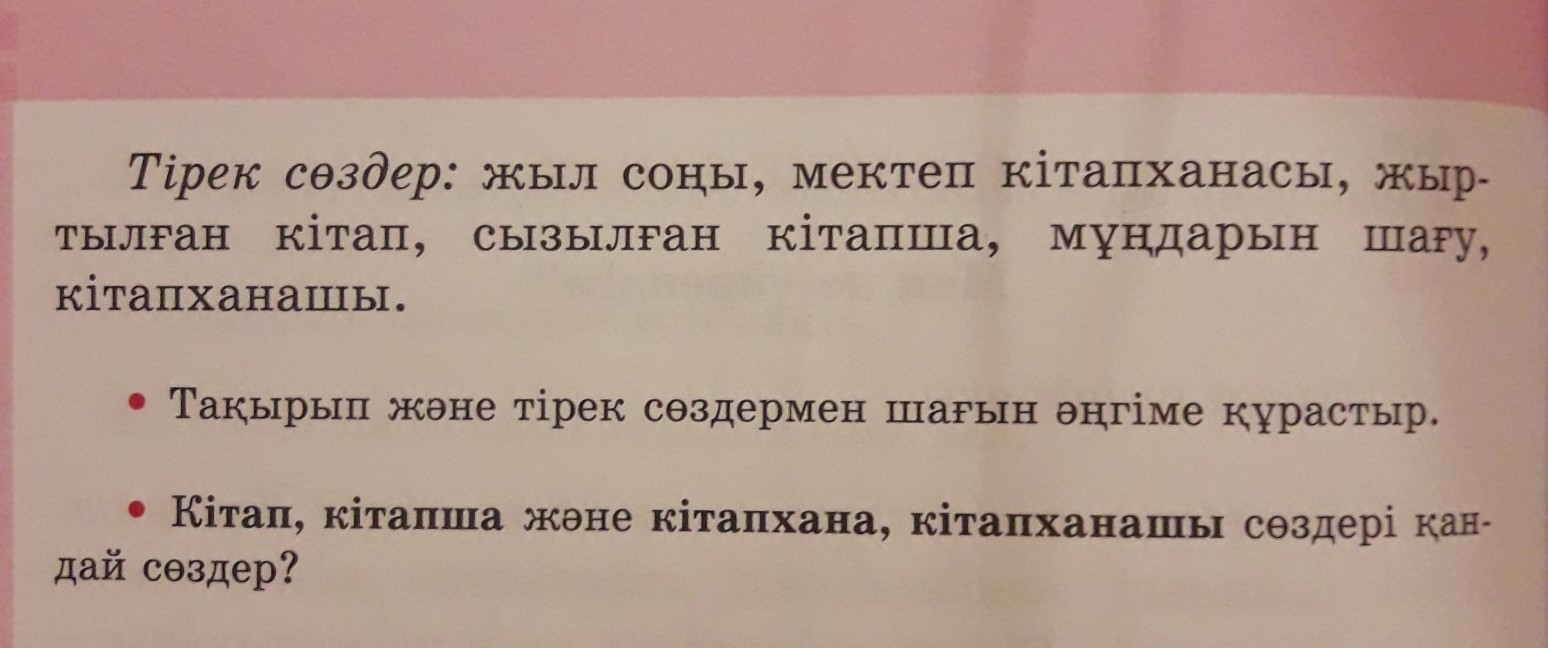тақырыбы: Кітаптар мұны

Ответы
Оқу жылының соңына қарай мектеп кітапханасынан жыл басында кітап алған балалар қайтадан кітаптарын әкеліп тапсырды. Олардың әкелгендері түгелдей дерлік жыртылған кітаптар мен сызылған кітапшалар. - Кітаптар қатты қиналған екен ғой,- деген кітапханашы сөзін естіген кітаптарға тіл біте бастады. Олар бірінен соң бірі мұңдарын шағып жатты. Бірінші физика кітабы : - "Мені бір есеп шығаратын бала алды да, беттерімнің барлығына есеп шығарып сызып тастады,"- деп мұңын шақты. Қазақ тілі кітабы жалғастырып: -"Менің астымдағы түп жағыма өздерінің аттарын жазып, әбден қорлады,"- деп ашуланды. Өзін-өзі тану кітабы да өз мұңын шақты: - "Менің үлкендігімді сөз қылып ешкім қаптағышпен қаптамайды, жыртылып, мұқабам түсіп қалуға шақ тұр". Кітапханашы бәрінің мұңдарын, күйініштерін тыңдап, бір күрсініп алып, кітап түптеуге кірісті.